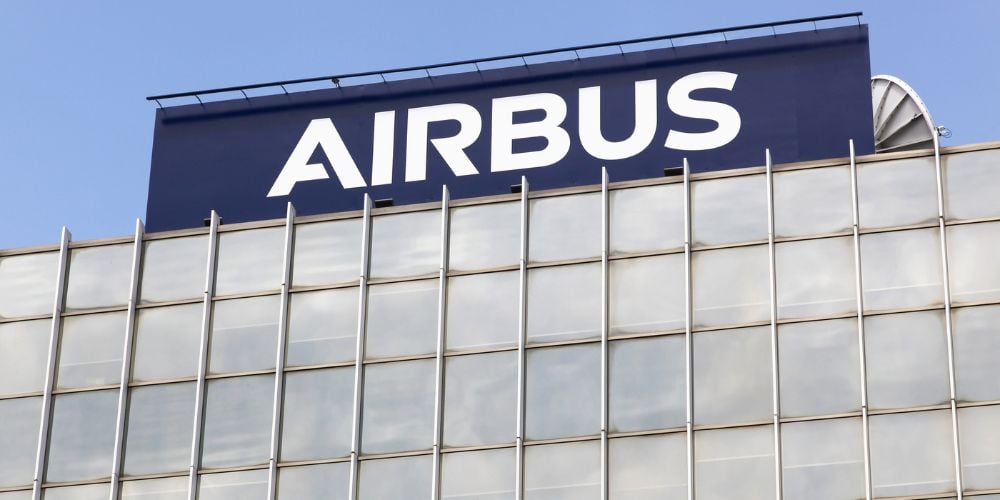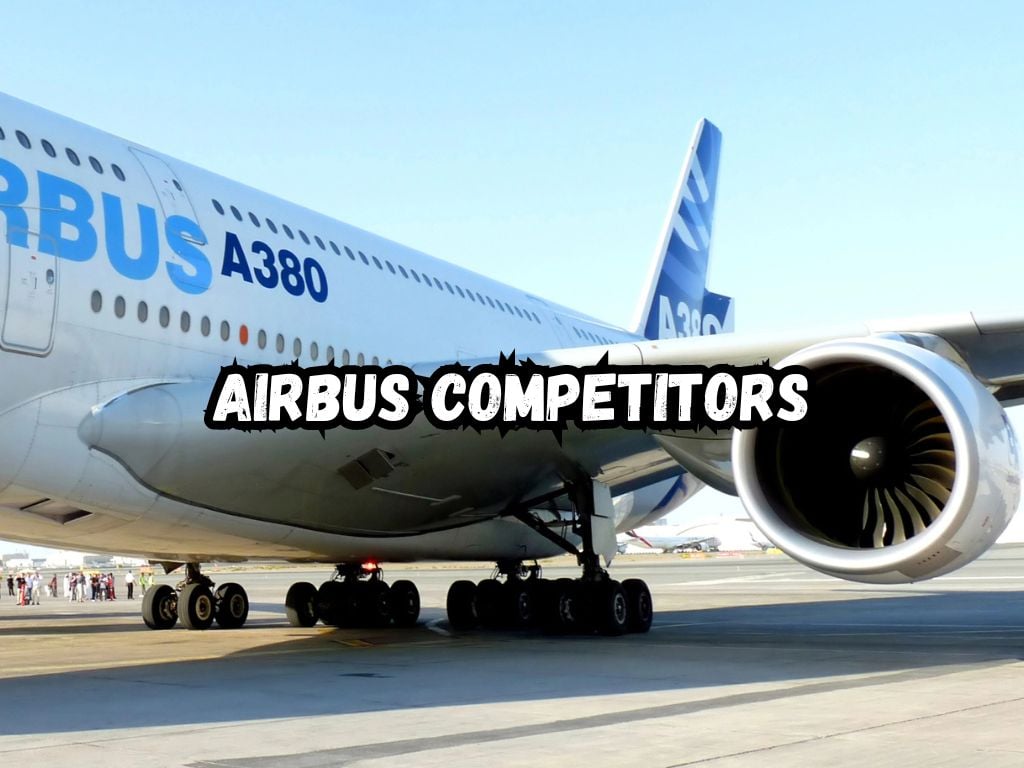Airbus is one of the leading airplane manufacturers in the world, and has an impressive market share in the aviation sector. However, it is not the only player in the game.
There are several other airplane manufacturers who are vying for their place in the industry, and they offer robust competition to Airbus.
In this article, we are going to take a comprehensive look at Airbus competitors in the aviation industry. We will explore the major competitors of Airbus, their challenges, strategies, and everything else that you need to know.
Airbus Competitors
Boeing
One of the most significant competitors of Airbus is the American giant, Boeing. Boeing is an American multinational corporation that designs, manufactures, and sells airplanes, rotorcraft, rockets, and satellites.
Founded in 1916, Boeing is the world’s largest aerospace company and a leading producer of commercial jetliners and military aircraft.
Boeing has had a long-standing rivalry with Airbus, and the two companies have been competing fiercely in the aviation industry.
Boeing has been a formidable opponent to Airbus, and it has a market share that is almost equal to Airbus.
Boeing is known for its military aircraft and commercial passenger airplanes, and it has a wide range of products that cater to various sectors in the aviation industry.
Boeing is currently working on developing the next generation of airplanes that are more fuel-efficient and environmentally friendly.

Embraer
Embraer is a Brazilian aerospace conglomerate that specializes in designing and manufacturing aircraft and defense systems.
Embraer is one of the leading regional airplane manufacturers, and it has been in the industry for over 50 years.
Embraer has a product range that includes commercial, military, and executive jets, and it has a market share that is almost equal to Bombardier.
Embraer primarily serves the regional aviation market, and it has been expanding its product range to cater to other segments in the aviation industry.
Embraer has been collaborating with various partners to expand its global reach, and it has been developing new technologies to keep up with the changing industry demands.
Bombardier
Bombardier is a Canadian multinational aerospace and transportation company that designs, manufactures, and sells airplanes, trains, and other transportation products and services.
Bombardier is a significant player in the aviation industry, and it has a market share that is almost equal to Embraer.
Bombardier has a wide range of products that cater to various sectors in the aviation industry, and it is a major supplier of regional jets and turboprops.
Bombardier is known for its innovative solutions and cutting-edge technologies. The company has been investing heavily in research and development to keep up with the changing demands of the industry.
Bombardier has been actively involved in strategic partnerships and collaborations to expand its global reach and create new opportunities for growth.
COMAC
Commercial Aircraft Corporation of China (COMAC) is a Chinese state-owned aerospace manufacturer that designs and develops commercial jets for the domestic and international markets.
COMAC is a relatively new player in the aviation industry, and it has been expanding rapidly in recent years.
The company has been developing various regional and narrow-body jets that cater to the Chinese market and other international markets.
COMAC has been investing heavily in research and development to build next-generation airplanes that are more fuel-efficient and environmentally friendly.
The company has been expanding its product range to cater to various segments in the aviation industry, and it has been collaborating with various partners to enhance its capabilities.
Irkut Corporation
Irkut Corporation is a Russian aircraft manufacturer that specializes in developing military and civil aircraft.
The company is known for its cutting-edge technologies and innovative solutions, and it has been one of the major suppliers of fighter jets to the Russian military.
The company has been expanding its product range to other segments in the aviation industry, and it has been developing narrow-body airplanes that cater to various markets.
Irkut Corporation has been investing heavily in research and development to build next-generation airplanes that are more fuel-efficient and technologically advanced.
The company has been collaborating with various partners to expand its global reach and create new opportunities for growth.
Sukhoi Civil Aircraft Company
Sukhoi Civil Aircraft Company is a division of the Russian aerospace corporation that specializes in developing regional jet aircraft for various markets.
The company has been in the aviation industry for over 70 years, and it has been known for its innovative solutions and cutting-edge technologies.
The company has a product range that includes various regional jets, and it has been actively involved in developing new technologies to cater to changing market demands.
The company has been investing heavily in research and development to build next-generation airplanes that are more fuel-efficient and environmentally friendly.
The company has been expanding its product range to cater to various segments in the aviation industry, and it has been collaborating with various partners to enhance its capabilities.
Comparison of Airbus with its Competitors
When it comes to comparing Airbus with its competitors, there are several factors that need to be considered. These include market share, product range, financial performance, and technological advancements.
Airbus and Boeing are the two major players in the aviation industry, and they dominate the market with a combined market share of over 80%.
However, as discussed above there are several other players in the industry who are offering robust competition to Airbus in their respective segments.
Product Range Comparison
Airbus has a diverse product range that includes narrow-body and wide-body airplanes, military aircraft, and helicopters.
Airbus has a strong presence in the regional, narrow-body, and wide-body airplane segments, and it has been expanding its product range to cater to other segments in the aviation industry.
Financial Performance Comparison
Airbus is a financially strong company, and it has been consistently delivering profits over the years.
However, the COVID-19 pandemic has had a significant impact on the aviation industry, and Airbus has had to make adjustments to its operations to stay afloat.
Other competitors in the industry have also been affected by the pandemic.
Technological Advancements Comparison
Airbus has been at the forefront of technological advancements in the aviation industry, and it has been developing new solutions to cater to the changing demands of the industry.
However, other competitors in the industry have also been investing heavily in research and development to build next-generation airplanes that are more fuel-efficient and technologically advanced.

Challenges Faced by Airbus Competitors
Airbus competitors face various challenges that impact their operations and profitability. These include regulatory challenges, financial challenges, technological challenges, and competition from Airbus.
Regulatory Challenges
The aviation industry is heavily regulated, and the regulatory environment can be challenging for companies that do not adhere to the standards.
Airbus competitors need to ensure that their airplanes meet the regulatory requirements to be allowed access to various markets.
Financial Challenges
The aviation industry is capital intensive, and companies need significant capital investments to develop new airplanes and expand their capabilities.
Airbus competitors need to ensure that they have access to capital to finance their operations and take advantage of growth opportunities.
Technological Challenges
The aviation industry is constantly evolving, and new technologies are being developed to cater to the changing demands of the industry.
Airbus competitors need to keep up with these changes and invest heavily in research and development to build next-generation airplanes that are more fuel-efficient and technologically advanced.
Frequently Asked Questions
Airbus and Boeing are major players in the aviation industry, with a combined market share of over 80%. While Airbus focuses on regional, narrow-body, and wide-body airplanes, Boeing is known for its commercial jetliners and military aircraft.
Both companies have a diverse product range to cater to various sectors within the industry.
What are the challenges faced by Airbus competitors in the aviation industry?
Airbus competitors face challenges such as regulatory compliance, financial constraints, technological advancements, and competition from Airbus itself.
Adhering to strict regulations, securing capital investments, keeping up with technological advancements, and effectively competing with a dominant player like Airbus are some of the key challenges they face.
How do Airbus competitors differentiate their products and stay competitive in the market?
Airbus competitors differentiate their products by offering unique features, capabilities, and technological advancements.
They invest in research and development to build fuel-efficient and technologically advanced airplanes that cater to changing customer demands. By focusing on product differentiation, they strive to stay competitive in the market.
What strategies do Airbus competitors adopt to enhance their capabilities and expand their global reach?
Airbus competitors adopt strategies such as forming strategic partnerships and collaborations, engaging in cost-cutting measures, expanding into new markets, and focusing on product differentiation.
These strategies help them enhance their capabilities, optimize their costs, create growth opportunities, and expand their presence globally.
How has the COVID-19 pandemic impacted Airbus and its competitors in the aviation industry?
The COVID-19 pandemic has significantly impacted the aviation industry as a whole, including Airbus and its competitors. The industry has experienced a decrease in air travel demand, leading to financial constraints, reduced orders for aircraft, and changes in business operations.
Both Airbus and its competitors have had to adapt to the challenges, making adjustments to their operations to navigate through this difficult period.
Conclusion
Airbus faces robust competition from several players in the aviation industry. Boeing, Embraer, Bombardier, COMAC, Irkut Corporation, and Sukhoi Civil Aircraft Company are some of the major competitors of Airbus.
These companies have their own strengths and strategies to compete effectively against Airbus, and they constantly strive to develop innovative and fuel-efficient airplanes to meet the changing demands of the aviation industry.
The competition among these players not only drives the industry forward but also ensures that customers have


 Tags:
Tags:










